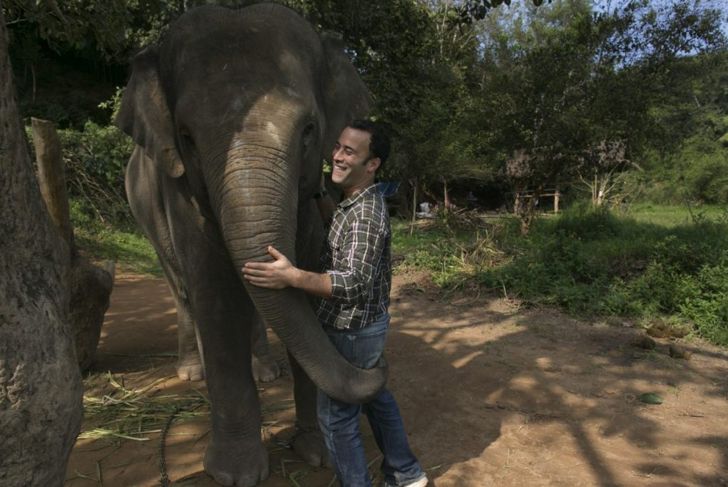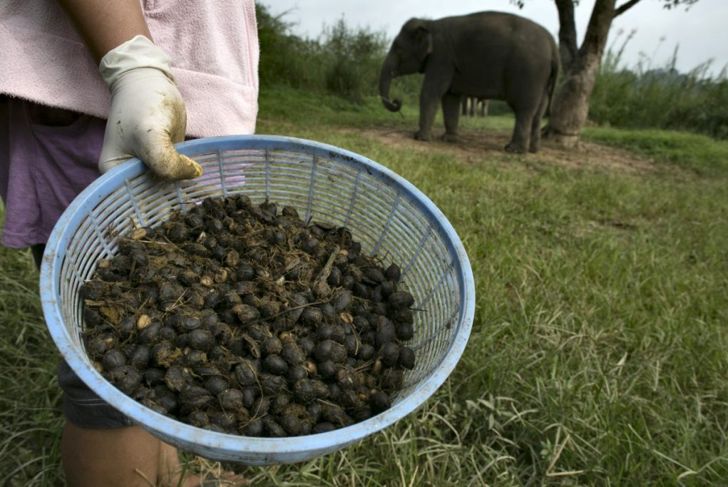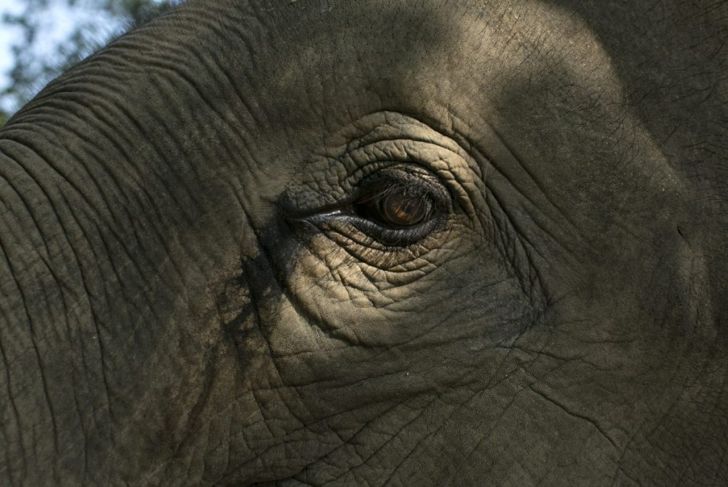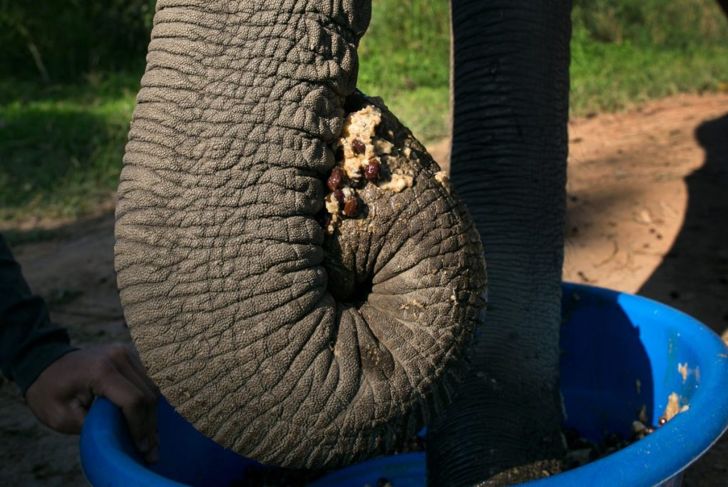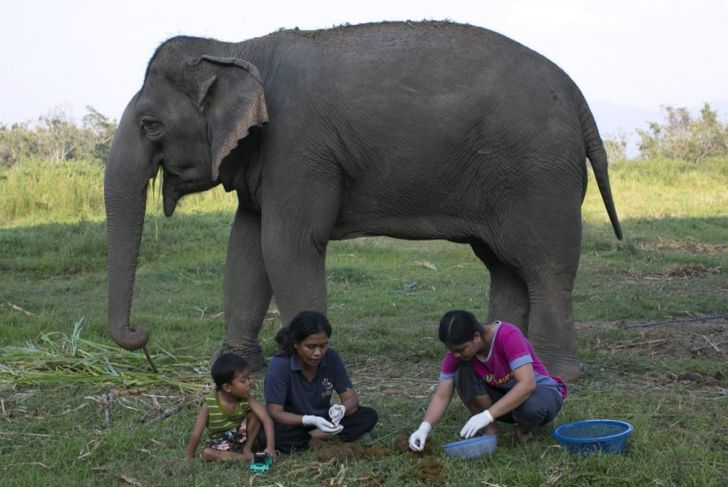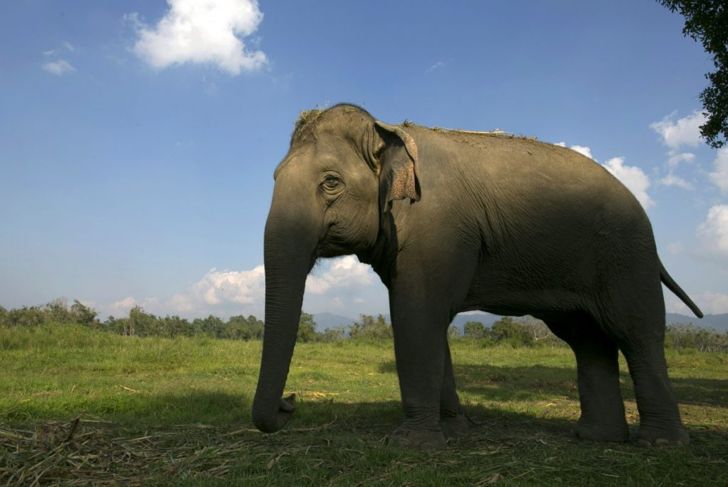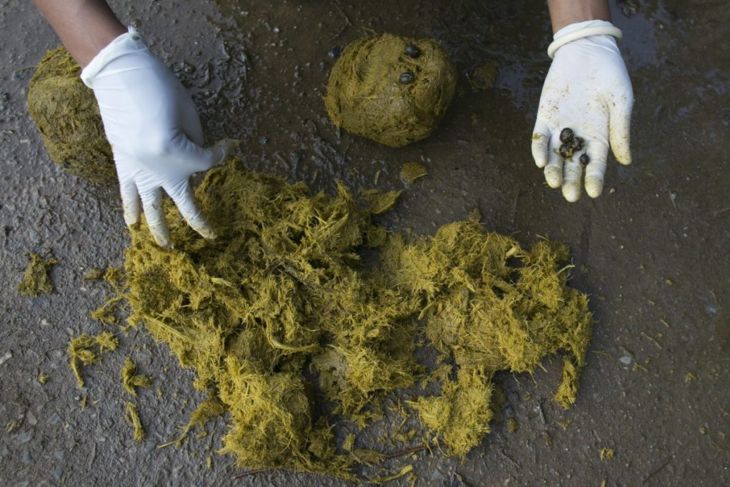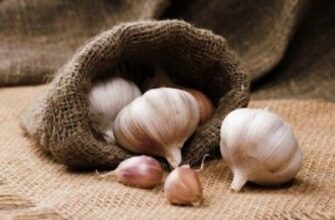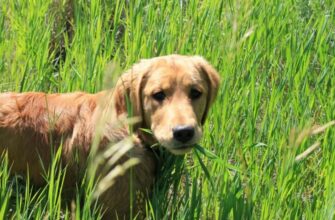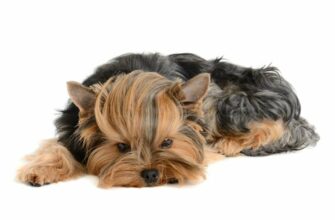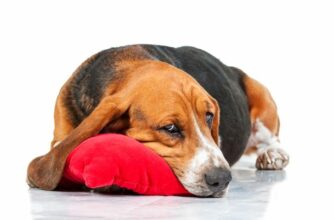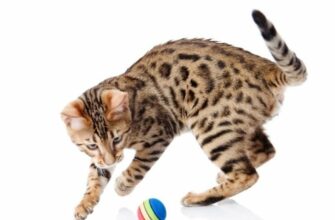Trends come and go but some are more memorable than others; and some boast better staying power. Elephant dung coffee, also known as black ivory coffee, is a new trend in the stream of cuppa-joe crazes. Whether or not it will outlast the caramel macchiato remains to be seen. Elephant dung coffee boasts a delectable chocolate and slightly floral aroma complemented by a cherry-chocolate taste. This, in itself, appeals to many coffee connoisseurs. However, the process by which this coffee is processed—through an elephant’s digestive tract—is what makes this java trend so unusual.
What is Elephant Dung Coffee?
Elephant dung coffee is normal coffee that goes through a not-so-typical production process. In order to achieve the smooth, rich tones of this varietal, the coffee beans are first fed to elephants. After passing through the digestive tract of each elephant, the beans are harvested. After being, thankfully, washed thoroughly and left to dry, they are packaged and sold to discerning coffee drinkers around the world.
The Founder of Black Ivory Coffee
Blake Dinkin, the founder of Black Ivory Coffee, was not the first person to view coffee beans lodged in animal feces and think: gold mine. Before there was elephant dung coffee, there was civet coffee, also known as Kopi Luwak, one of the most expensive coffees on the planet. Dinkin reasoned the larger digestive systems of elephants could easily produce more and possibly better coffee beans than civets. After about a decade, Dinkin is proving that using elephants in the coffee production process makes good fiscal sense.
Expensive Coffee Beans
Elephant dung coffee is definitely a splurge. A cup of espresso-sized elephant dung joe will set you back about $13. A regular cup of coffee costs about $70. Keep in mind that it takes about 30 pounds of coffee beans to produce just a single pound of elephant dung coffee. Its hefty price tag isn’t unusual when it comes to coffee that relies on animals for fermentation. Civet coffee is extravagantly pricey, too.
Availability
Unfortunately, your local coffee house isn’t likely to stock Black Ivory Coffee. This brew is currently featured by just a few luxury hotels in countries like Thailand, Abu Dhabi, and the Maldives. The coffee’s rarity is due to a laborious production process that relies on skilled workers and willing elephant sanctuaries. Even so, Black Ivory Coffee has an online shop; individuals who want to assess this fad for themselves can order from the company, though batches sell out quickly.
Where are These Coffee-Making Elephants?
Black Ivory Coffee currently utilizes about 27 elephants who live in a sanctuary in a remote part of Thailand, the Surin region, in Ban Taklang village. Shipments of Thai Arabica coffee cherries are brought to the sanctuary where they’re mixed into a kind of fruit mash and then fed to the elephants who, according to their caregivers, eat the concoction quite willingly.
Why Does Elephant Dung Coffee Taste So Good?
Elephant dung coffee is so good, according to Black Ivory Coffee, because fermentation in the animals’ stomachs breaks down the proteins in the bean shells. The result is a brew with notes of nuttiness, cherries, and even chocolate undertones. Some people report the coffee is mild — almost as mild as some teas.
Why Elephants?
Black Ivory Coffee’s founder reasoned that if the small stomachs of civets could produce such delicious coffee beans, the larger stomachs of elephants might operate like a slow cooker, an extraordinary vehicle for fermenting coffee beans. While in the elephants’ digestive tracts, the beans are partially broken down through a fermentation process. This partial digestive process releases the sugar in the bean and reduces its bitterness. Elephants use fermentation to break down the greens and grasses they eat; it’s through this fermentation process that the coffee gets its smooth taste.
How Do the Coffee Beans Affect the Elephants?
Some people may worry about the elephants eating the coffee beans and all the caffeine they contain. However, because the beans pass through the elephants’ digestive tracts with their shells intact, the caffeine remains locked inside the beans. Eating the beans and passing them out doesn’t appear to harm the elephants at all.
It’s a Tough Job!
It takes a couple days for the elephants to pass the coffee beans in their dung. Extracting the beans from the dung is a labor-intensive process. Currently, Black Ivory Coffee relies on the elephants’ caregivers at the sanctuary to retrieve the beans by (gloved) hand. Willing laborers make about $10 for the 15 minutes of work it takes to extract the beans from a heap of elephant dung. That’s high pay in an area where people who harvest rice must work all day to earn $6.
Support for Elephant Sanctuaries
Black Ivory Coffee funnels nearly 10% of its profits back into the elephant sanctuary to care for its elephants. It also sells the coffee through certain outlets designed to support the sanctuary. Although the company has had multiple offers to expand, the founder wants to develop slowly to remain true to its values and processes. For now, people who want to taste this unique brew will need to order it directly from the company or visit a 5-star resort or hotel that offers the experience.

 Home
Home Health
Health Diet & Nutrition
Diet & Nutrition Living Well
Living Well More
More
